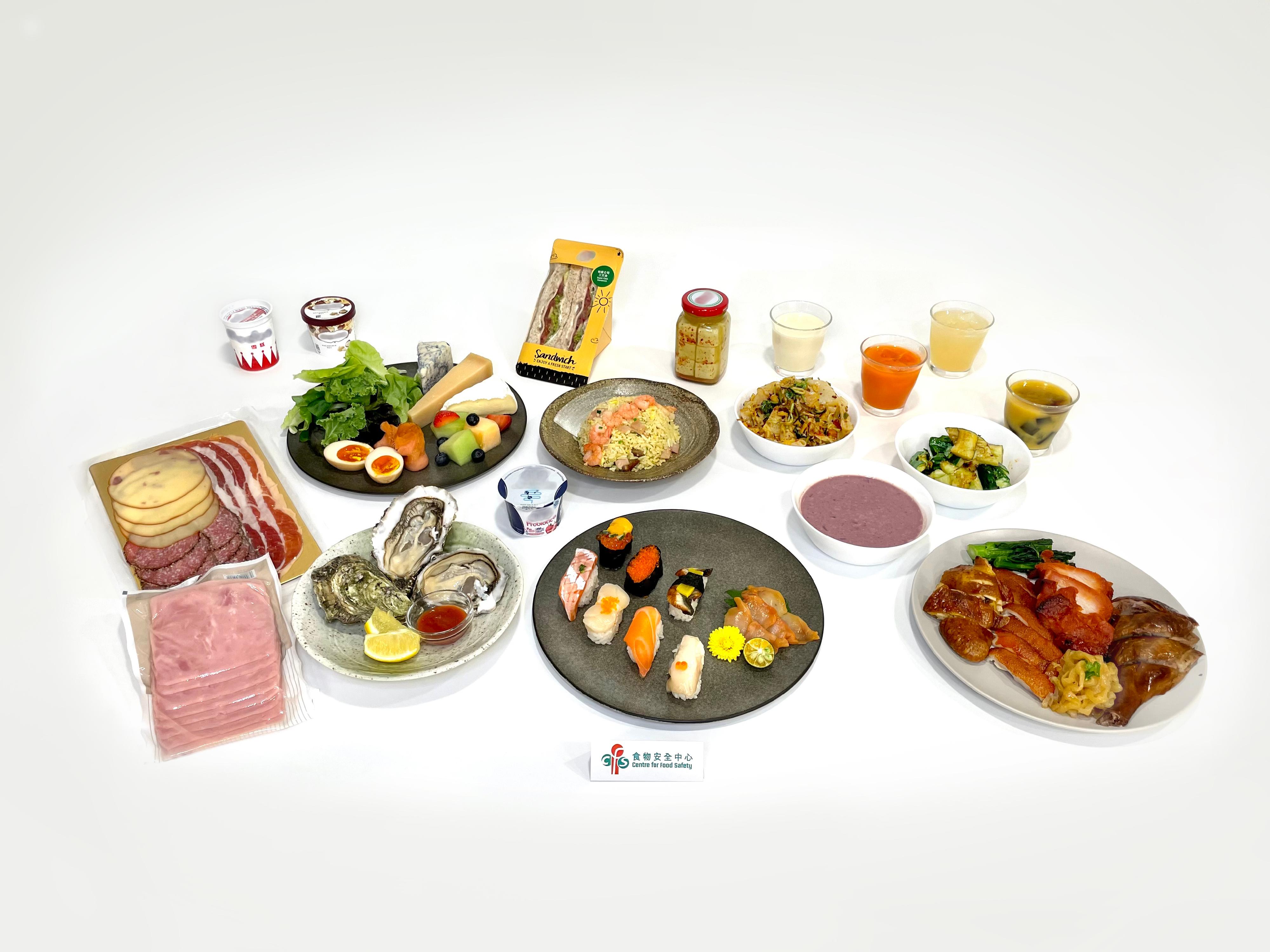The Centre for Food Safety (CFS) of the Food and Environmental Hygiene Department (FEHD) today (August 9) released the findings of its Summer Food Surveillance Programme 2023. The results of about 1 850 food samples tested were satisfactory except for one sample that had been announced earlier. The overall satisfactory rate was 99.9 per cent. A CFS spokesman reminded members of the public to remain vigilant and pay more attention to food safety and environmental hygiene as the hot and humid climate of summer in Hong Kong facilitates the multiplication of bacteria.
The spokesman said, "The CFS collected about 1 850 samples from market stalls, restaurants, food factories, fresh provision shops, online vendors (including online retailers and online food delivery platforms), hawkers and others for tests."
The samples comprised 175 samples of dairy products and frozen confections, 131 samples of cut fruit and salads, 90 samples of desserts and drinks, 45 samples of sandwiches, 268 samples of cold cuts or cooked meat products, 607 samples of aquatic products (such as sushi and sashimi, fish, crustaceans, molluscs and other edible aquatic animals) and 536 samples of other ready-to-eat foods.
The spokesman said that 1 750 food samples were collected for microbiological tests, 30 samples for tests of metallic contaminants and 72 samples for tests of veterinary drug residues. Samples tested for veterinary drug residues and metallic contaminants were all satisfactory. As for the microbiological tests, except for one prepackaged frozen suckling pig ham sample suspected to be contaminated with Listeria monocytogenes, the remaining samples were all satisfactory. The overall satisfactory rate was 99.9 per cent.
The CFS has announced the test results of the unsatisfactory samples and conducted follow-up actions, including instructing the vendors concerned to stop selling the relevant food and remove from shelves the affected products, and tracing the sources of the food items in question.
The spokesman reminded members of the public in particular that raw or undercooked foods are high-risk foods as there is not any, or inadequate, heat treatment to eliminate the microorganisms present that can pose risks to human health. Raw or undercooked foods are also associated with the risk of contracting antimicrobial resistance (AMR) microorganisms. Although these AMR microorganisms may not cause illnesses, they may transfer their antibiotic resistance genes to other bacteria inside the human body, therefore affecting the effectiveness of the future use of antibiotics when needed. Susceptible populations such as pregnant women, young children, the elderly and people with weakened immunity (e.g. people with chronic diseases or those on antibiotics treatment, antacid and long-term steroids or drugs given to prevent transplant rejection) are of higher risk of being infected or having complications if they consume raw or undercooked foods due to their health status. They should therefore avoid eating raw and undercooked foods.
Members of the public should pay attention to food safety, especially in summer, and observe the following Five Keys to Food Safety in order to reduce the risk of foodborne diseases:
• choose (choose safe raw materials);
• clean (keep hands and utensils clean);
• separate (separate raw and cooked food);
• cook (cook thoroughly); and
• safe temperature (keep food at a safe temperature).
Members of the public are also reminded to dine out in licensed and hygienic restaurants. Food premises selling sushi and sashimi or other high-risk foods require a special permit. The public should patronise only those with relevant licences or permits issued by the FEHD.

